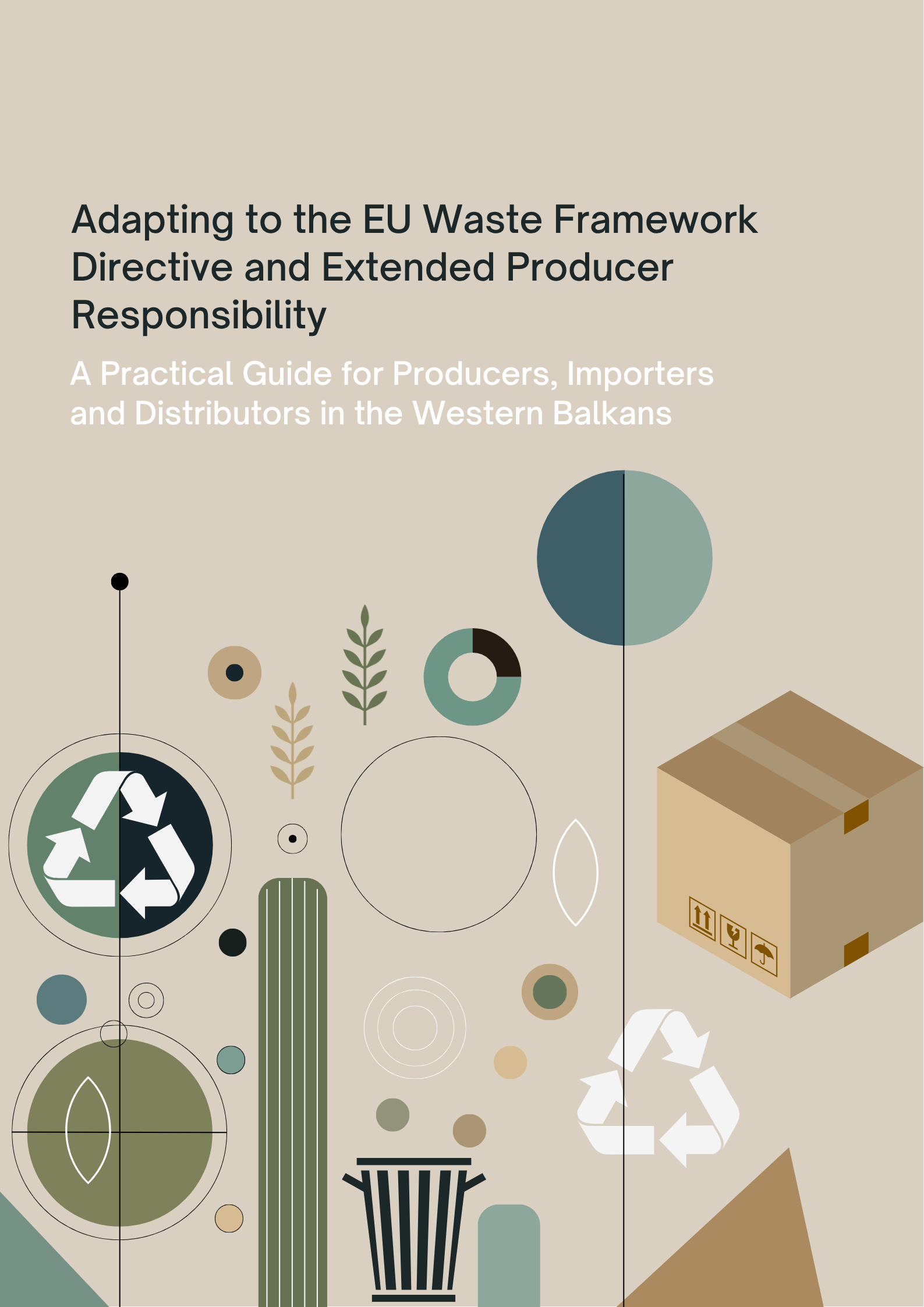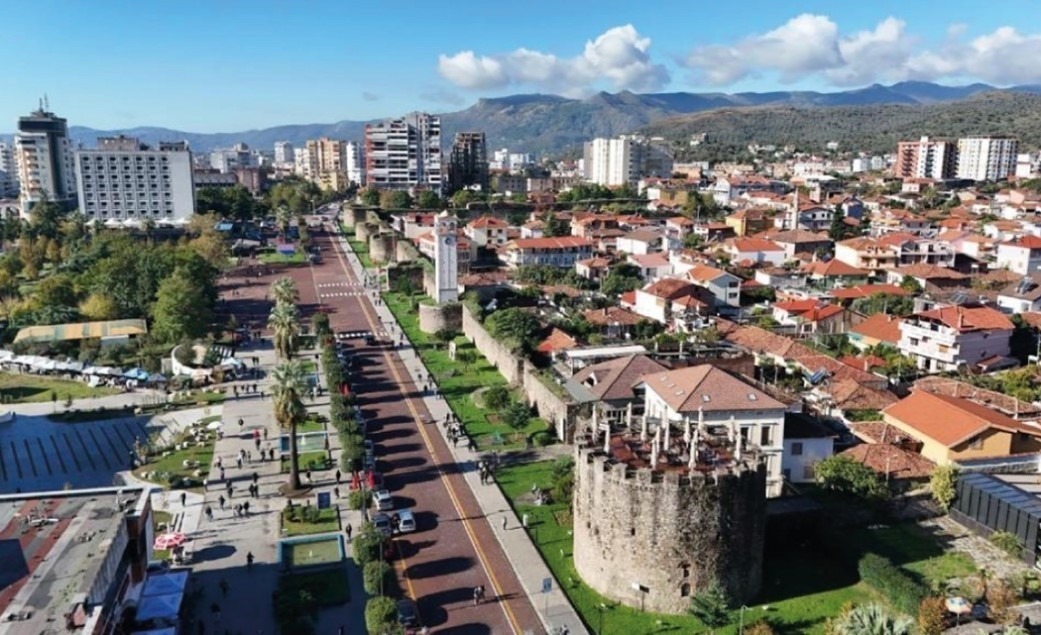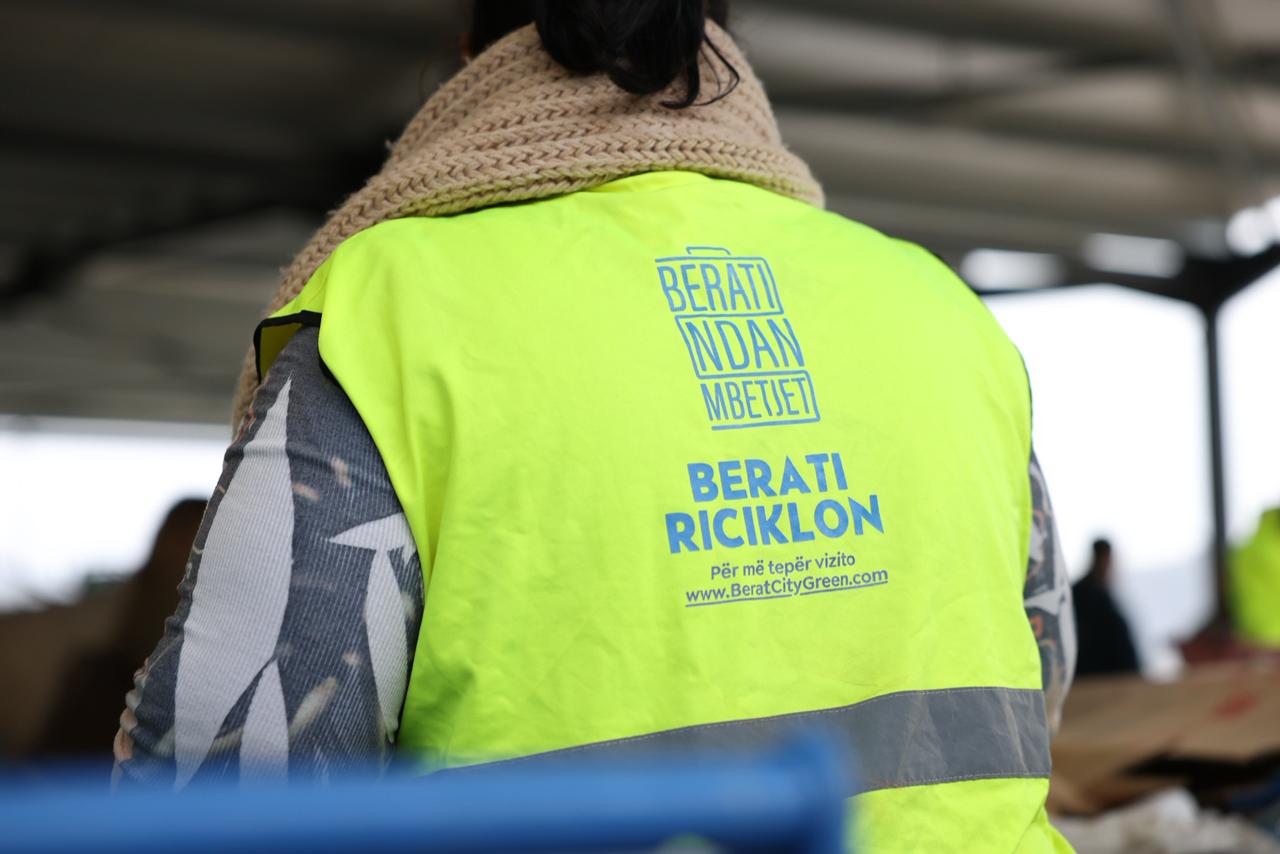Adapting to the EU Waste Framework Directive and Extended Producer Responsibility

A Practical Guide for Producers, Importers and Distributors in the Western Balkans
This comprehensive guide helps businesses in the Western Balkans navigate the transition to EU environmental standards, specifically the Waste Framework Directive and Extended Producer Responsibility (EPR) requirements.
Key Contents:
- Regional Assessment: Analysis of EPR implementation across all six Western Balkan economies, revealing that Bosnia and Herzegovina, North Macedonia, and Serbia have established systems, while Albania, Kosovo, and Montenegro are in early development stages
- Business Survey Insights: Findings from 146 companies showing that 73% of exporters have implemented EPR measures compared to less than half of locally-focused firms, with significant challenges around regulatory clarity and financial constraints
- Practical Implementation Steps: Step-by-step guidance for businesses on EPR compliance, from understanding obligations and engaging with Producer Responsibility Organizations to optimizing packaging design and reporting requirements
- EU Best Practices: Comparative analysis of successful EPR systems in Spain, Germany, Italy, and France, highlighting different organizational models and their effectiveness
- PRO Establishment Guide: Detailed roadmap for creating Producer Responsibility Organizations, covering everything from regulatory assessment to operational launch and quality assurance
The guide serves manufacturers, importers, distributors, retailers, and waste management operators, providing both immediate compliance solutions and strategic insights for sustainable business growth in alignment with EU circular economy goals.
Acknowledgements:
This study was prepared by the Urban Research Institute, the Union of Chambers of Commerce and Industry of Albania, the Foreign Trade Chamber of Bosnia and Herzegovina, the Kosovo Chamber of Commerce, the Chamber of Economy of Montenegro, the Economic Chamber of North Macedonia and the Chamber of Commerce and Industry of Serbia within the framework of the Chamber Partnership Western Balkans.
Financial support was provided by the Federal Ministry for Economic Cooperation and Development (Germany). The views expressed in this study are solely those of the authors and do not necessarily reflect the views of the associated organisations.







